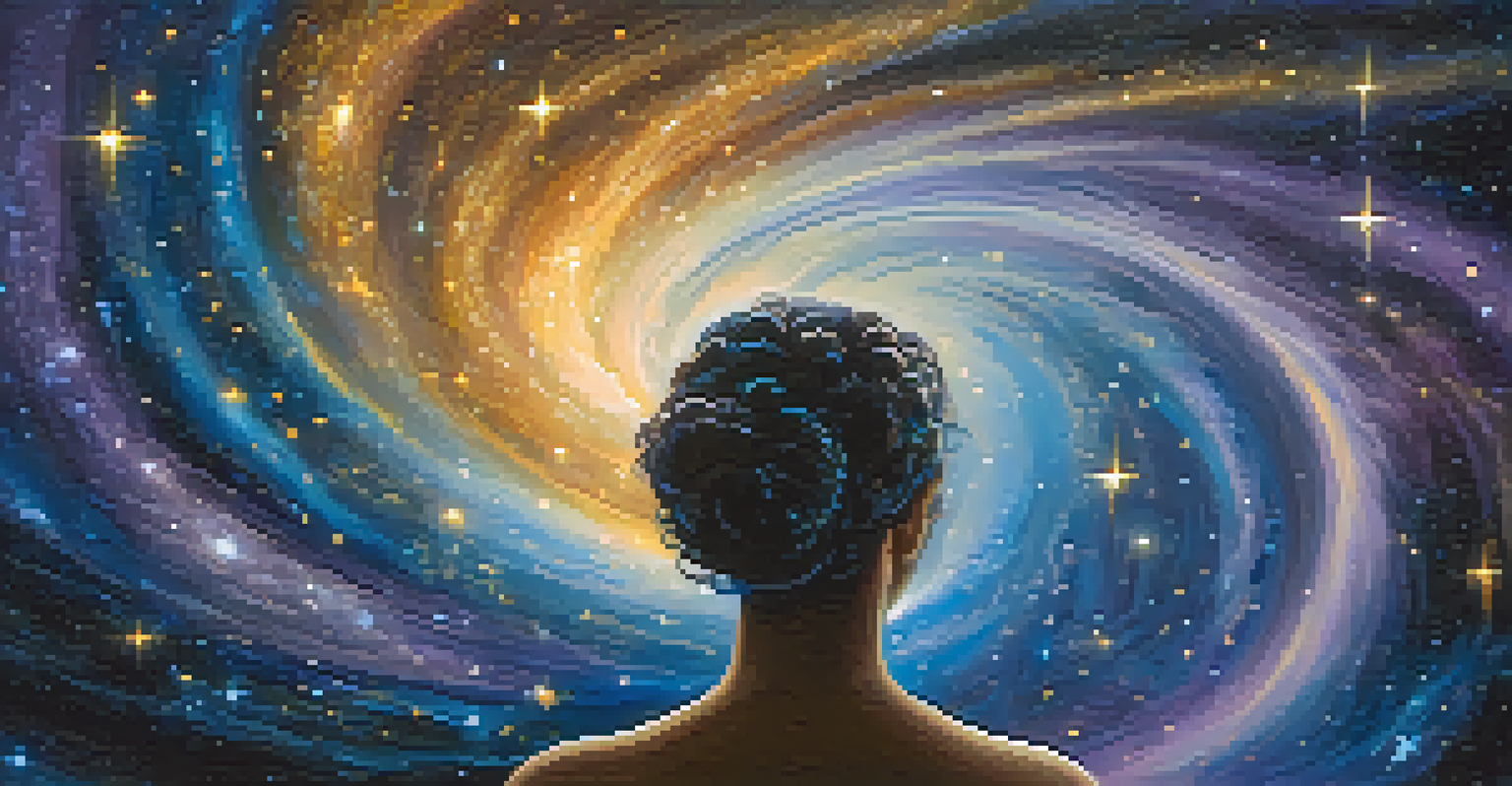Understanding the Universe: Spirituality Meets Astrophysics

The Cosmic Dance: How Spirituality and Astrophysics Align
At first glance, spirituality and astrophysics may seem worlds apart, but they share a common thread: the quest for understanding our existence. Both fields invite us to ponder the big questions: Why are we here? What lies beyond our perception? This cosmic curiosity drives both scientists and spiritual seekers alike.
We are stardust brought to life, then empowered by the universe to figure itself out—and we have a duty to it and ourselves to perform that task.
Astrophysics, with its focus on the physical universe, unravels the mysteries of celestial bodies and cosmic phenomena. Meanwhile, spirituality often delves into the unseen connections that bind us to the universe. When we explore these realms together, we find a richer tapestry of meaning in our lives.
Imagine standing under a starlit sky, feeling both small and significant. This feeling encapsulates the essence of both spirituality and astrophysics—an appreciation for the vastness of the universe and our place within it.
The Universe as a Reflection of Inner Self
Many spiritual traditions teach that the universe is a reflection of our inner selves. This idea resonates with astrophysics, which reveals that we are made of the same elements as stars—literally! Our bodies contain carbon, hydrogen, and oxygen—all forged in the hearts of ancient stars.

This connection suggests that by understanding the cosmos, we may also glean insights into our own nature. Just as the universe is ever-expanding, so too can our consciousness evolve when we embrace this knowledge.
Spirituality and Science Intertwined
Both spirituality and astrophysics seek to answer fundamental questions about existence and our place in the universe.
In this way, the universe becomes a mirror, inviting us to explore our thoughts, feelings, and spiritual beliefs. The more we learn about the cosmos, the more we understand ourselves.
The Role of Awe in Spirituality and Science
Awe is a powerful emotion that bridges spirituality and science. When we gaze at the night sky, we can’t help but feel a sense of wonder about the vastness of space. This feeling often prompts spiritual reflections about our place in the universe.
The universe is not only queerer than we suppose, but queerer than we can suppose.
Astrophysics ignites this sense of awe through discoveries of black holes, galaxies, and the cosmic web. Each revelation invites us to ponder the deeper meanings of existence, paralleling the insights found in spiritual practices.
Whether through meditation, prayer, or simply stargazing, cultivating a sense of awe can enhance our connection to both the universe and our inner selves, fostering a harmonious relationship between science and spirituality.
Quantum Physics: The Bridge Between Two Realms
Quantum physics challenges our traditional understanding of reality, and in doing so, it creates an intriguing intersection between spirituality and astrophysics. This field reveals that at a fundamental level, particles can exist in multiple states, making the universe inherently unpredictable.
Many spiritual philosophies also embrace uncertainty, teaching that life is a flow of possibilities rather than fixed outcomes. This parallel invites us to reconsider how we perceive reality, encouraging a more flexible and open-minded approach to both science and spirituality.
Awe Connects Us to the Cosmos
Experiencing awe in the face of the universe enhances our connection to both spiritual and scientific realms.
As we delve into quantum mechanics, we find ourselves contemplating the nature of existence. This contemplation can deepen our spiritual beliefs while enhancing our understanding of the universe.
The Search for Meaning: A Shared Journey
Both astrophysicists and spiritual seekers embark on a quest for meaning, albeit through different lenses. Scientists seek to uncover the laws governing the universe, while spiritual individuals often look for purpose and connection beyond the physical realm.
This shared journey highlights our fundamental human desire to understand our place in the grand scheme of things. As we explore the cosmos, we are not just searching for answers to scientific questions; we are also seeking deeper truths about ourselves.
Ultimately, this convergence of inquiry enriches our experiences, reminding us that the search for meaning is a universal endeavor that transcends disciplines.
The Universe's Mysteries: Questions without Answers
Throughout history, humanity has grappled with the mysteries of the universe. From the origins of the Big Bang to the possibility of extraterrestrial life, these questions often lead us to more profound spiritual inquiries about existence.
Astrophysics provides us with tools to explore these mysteries, yet many questions remain unanswered. This uncertainty can be disconcerting but also invites a sense of wonder and curiosity, fostering a spiritual mindset that embraces the unknown.
Future Blurs Science and Spirituality
Emerging fields like astrobiology suggest a future where scientific discoveries and spiritual practices inform and enrich each other.
As we contemplate these cosmic enigmas, we are reminded that the journey of discovery is just as important as the answers we seek.
Finding Balance: Integrating Science and Spirituality
Integrating spirituality and astrophysics encourages a balanced perspective on life. By recognizing the value of both the scientific method and spiritual exploration, we can cultivate a holistic understanding of our existence.
This balance allows us to appreciate the empirical nature of science while also acknowledging the intangible aspects of spirituality. Each perspective offers unique insights that can enrich our understanding of the universe and ourselves.

Ultimately, finding harmony between these realms can lead to a more fulfilling spiritual and intellectual journey, reminding us that both science and spirituality contribute to our quest for understanding.
The Future of Spirituality and Astrophysics: A New Paradigm
As we move into the future, the lines between spirituality and astrophysics may continue to blur. Emerging fields like astrobiology and consciousness studies are already exploring questions that straddle both domains.
This evolution invites us to consider new paradigms for understanding our existence, where science and spirituality coexist and inform one another. Imagine a future where scientific discoveries enhance our spiritual practices and vice versa.
In this new paradigm, we can foster a sense of unity and interconnectedness, recognizing that the quest for knowledge and meaning is a shared human experience that transcends boundaries.